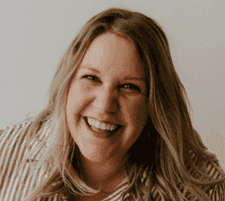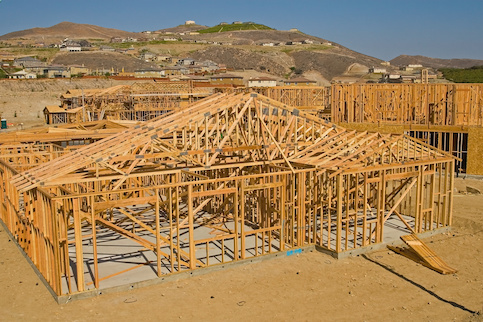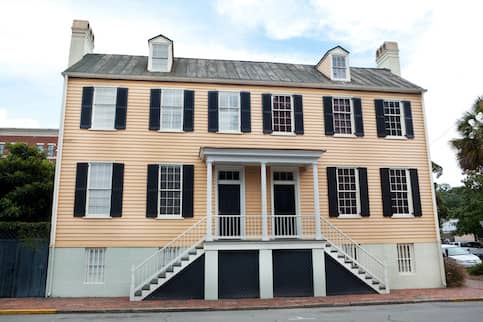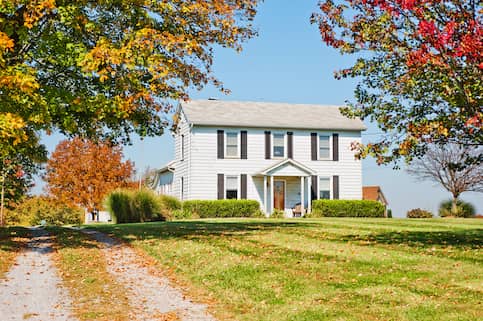When you’re ready to buy or refinance a home, you’ll likely want to weigh a few loan options. You may be familiar with both a fixed-rate mortgage and an adjustable-rate mortgage (ARM), but what about a mortgage that combines the two?
That would be a mortgage known as a convertible ARM. Let’s explore the pros and cons of a convertible ARM and the lender requirements you’ll need to meet to get approved for one.
What Is A Convertible ARM?
A convertible ARM loan is an adjustable-rate mortgage that allows borrowers to convert to a fixed-rate mortgage after a specified period.
Because ARMs tend to have a lower initial interest rate than a fixed-rate home loan, a convertible ARM can be attractive to real estate investors looking to get a mortgage in this market. The downside of a convertible ARM is that although the initial rate is lower, it could go up significantly in the future to reflect changing market conditions.
The beauty of a convertible ARM is that it lets you convert from an ARM to a fixed-rate mortgage. This way, you can get the low initial rate associated with ARMs and guarantee rate certainty in the future.
Adjustable-Rate Mortgage Vs. Fixed-Rate Mortgage
To fully understand a convertible ARM, it’s necessary to understand the basics of both adjustable- and fixed-rate mortgages. First, let’s break down the differences.
An ARM loan has a fixed interest rate for a number of years at the beginning of the loan term. This initial interest rate – which is lower than comparable interest rates you could get with a fixed-rate loan – may last 5, 7 or 10 years. Once this period ends, the rate adjusts at intervals – often every 6 months or each year. The term is usually 30 years.
Fixed-rate loans have an interest rate that doesn’t change over the course of your mortgage. Your payment may change as a result of fluctuations in property taxes and homeowners insurance, but the amount you put toward your principal and interest doesn’t vary.
See What You Qualify For
Buy A Home
Discover mortgage options that fit your unique financial needs.

Refinance
Refinance your mortgage to have more money for what matters.
Tap Into Equity
Use your home’s equity and unlock cash to achieve your goals.
How Does A Convertible ARM Mortgage Work?
The key feature to understand about a convertible ARM is that you have a period of time during which you can switch to a fixed rate. A convertible ARM begins as an adjustable-rate mortgage. If you don’t elect to convert the mortgage, it’ll adjust after the fixed-rate period expires.
If you decide to convert to a fixed rate, you’ll have the option to do so for the first number of years (usually 1 – 5 years, but your contract will specify). You typically must pay a fee to lock in the interest rate, but you don’t have to pay for closing costs again.
When you convert to a fixed-rate mortgage, your contract will have language on exactly when and how the market rate is determined at the time of conversion.
Basic Requirements For A Convertible Mortgage
When looking at a convertible ARM as an option, take the steps below to improve your chances of getting approved. In reality, these are the same steps you should take if you’re hoping to get approved for any type of mortgage loan:
- Keep an eye on your credit score. Your credit score helps determine whether you can be approved for a particular type of mortgage, and it’s one of the key determinants of your interest rate. You can keep your score high by forgoing credit or loans you don’t need, keeping your credit utilization low and making your payments on time.
- Maintain a low debt-to-income ratio (DTI). DTI is a comparison of your monthly debt payments and your pretax income. This is one of the most important factors in whether you’ll qualify for a mortgage since lenders use DTI to determine the monthly payment you can afford.
- Save for a down payment. There’s usually a minimum down payment you need to make a home purchase, or you’ll need a certain amount of equity to refinance. But beyond that, the higher your down payment or equity, the less risk your loan poses for a mortgage lender, and the more likely you are to get a better interest rate.
The Pros And Cons Of A Convertible ARM Loan
Every mortgage option has benefits and drawbacks, and convertible ARM loans are no exception. Let’s find out why.
Convertible ARM Pros
Advantages of convertible ARMs include:
- Flexibility: You have the option of converting to a fixed-rate mortgage, without refinancing, fairly early in the life of the loan.
- The ARM conversion is less expensive: If you decide to convert to a fixed rate, you won’t have to pay closing costs as you would if you refinance.
- A lower-than-fixed initial interest rate: Because the interest rate is adjustable before you convert it, it will be lower initially than the fixed rate for the same term length.
Convertible ARM Cons
While convertible ARMs carry benefits, they also come with these downsides:
- Unpredictability: Your interest rate could go up or down. Consequently, it’s hard to know whether it makes sense at any given time to convert to a fixed-rate mortgage. It’s extremely difficult to predict interest rate movements.
- Your payment amount could increase: If you find yourself in a situation where the prime rate or another index tied to your ARM is rising, your monthly payment may go up. If so, it won’t make sense to do the conversion since fixed rates are higher.
- Rates typically being higher than with standard ARMs: Because you have the option over several years to convert to a fixed rate, rates are typically slightly higher than you would find with a traditional ARM.
- Conversion fee: There’s usually a fee to convert from an ARM to a fixed rate. Be aware of this before moving forward.
Find out if an ARM is right for you.
See rates, requirements and beneifts.
Convertible ARM FAQs
Below are answers to a few frequently asked questions about convertible ARMs.
Why are convertible mortgages a good idea?
Speaking generally, convertible ARMs are good to the extent that they give you the flexibility to convert to a fixed-rate mortgage without having to go through a full refinance approval and pay closing costs again. The defining feature of convertible ARMs is the choice they allow clients to have on the front end of the mortgage.
When should I get a convertible mortgage loan?
The best time to get a convertible ARM is when you think interest rates will fall significantly at some point in the relatively near future. It doesn’t make sense to convert to a fixed rate when rates are higher. If rates fall, on the other hand, that’s when you want to lock that rate in.
The problem is it all comes down to your best guess at some point. No one can predict with 100% certainty which way interest rates are going to go. There’s always a risk you could be stuck with higher payments.
How do I get a convertible ARM mortgage?
The process for getting a convertible ARM should be similar to the process involved with securing any other type of loan. One notable exception is that the loan starts as an ARM, so you’ll be qualified a little differently than is typical. The amount you can qualify for is going to be based on the lifetime caps for the ARM.
Other than that, you’ll want to have income and asset documentation ready. It’s a good idea to have the following items available, among others:
- W-2s
- 1099s
- Tax returns
- Bank statements
- Pay stubs
The Bottom Line: Weigh The Benefits And Risks Before Getting A Convertible ARM
A convertible ARM can give you the flexibility to convert from an adjustable-rate to a fixed-rate mortgage. However, it’s important to be aware that the ARM interest rate may be higher than you could get with a standard ARM. Additionally, it may not make sense to convert to a fixed rate if interest rates rise.
Find A Mortgage Today and Lock In Your Rate!
Get matched with a lender that will work for your financial situation.

Miranda Crace
Miranda Crace is a Staff Writer for Rocket Companies, bringing a wealth of knowledge about mortgages, personal finance, real estate and personal loans for over 10 years. Miranda is dedicated to advancing financial literacy and empowering individuals to achieve their financial and homeownership goals. She graduated from Wayne State University, where she studied PR writing, film production and film editing. In her spare time, Miranda enjoys traveling, actively engages in the entrepreneurial community, and savors a perfectly brewed cup of coffee.












